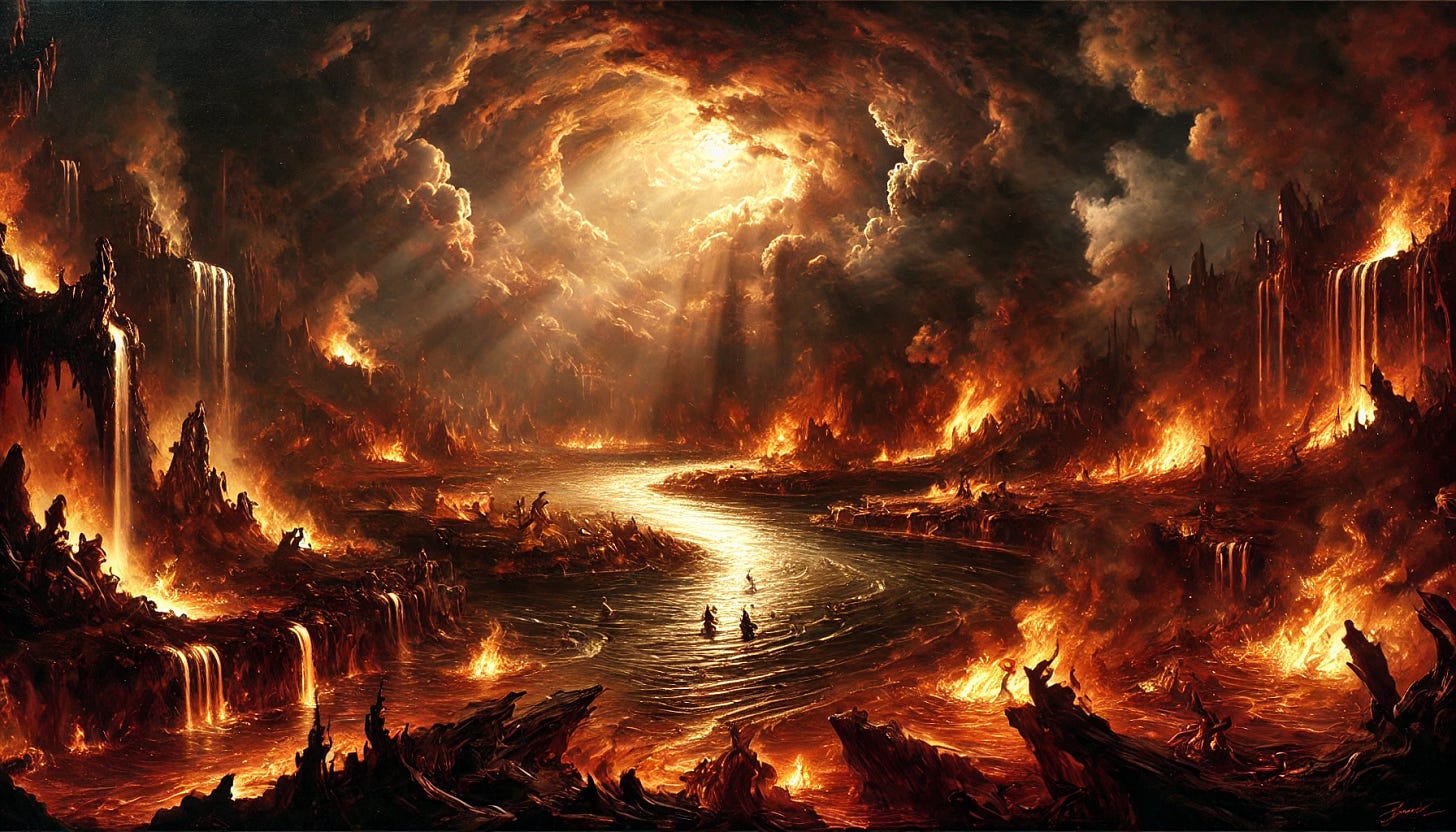Click here to read the passage.
Click here to read the notes and questions for Revelation 20:1-10.
Main Idea: Jesus will defeat all the enemies of God forever by sending them to eternal punishment in hell.
Hell was once a Bible doctrine people believed and feared. It was never far from their minds or absent from serious conversations. But times have changed.
Theologian Donald Bloesch writes: “The doctrine of hell has passed out of conversation and preaching, even in conservative evangelical churches.”
But hell has not really disappeared so much as it has been ignored or redefined or lampooned.
As New York Times columnist Ross Douthat, a Catholic, writes about what modern-day Americans think about hell: “Hell means the Holocaust, the suffering in Haiti.… And if it’s hard for the modern mind to understand why a good God would allow such misery on a temporal scale, imagining one who allows eternal suffering seems not only offensive but absurd.”
The Greek word “gehenna” is found 12 times in the New Testament and is always translated as “hell.” Christ used the word 11 times (Matthew 5:22, 29, 30; 10:28; 18:9; 23:15, 33; Mark 9:43, 45, 47; Luke 12:5).
Using Matthew 25:31-46, Jesus taught the following:
• Hell is real.
• Hell is separation from God.
• Hell is for all the “accursed ones.”
• Hell is eternal.
• Hell is fire.
• Hell is a prepared place.
• Hell is eternity with the Devil and his angels.
• Hell is inevitable if you have never come to Christ.
• Hell is inescapable once you are there.
• Hell is avoidable if you will repent and believe in Jesus Christ.
Jesus believed hell was real. He leaves no room for either universalism (the teaching that all will eventually be saved) or annihilationism (the teaching that all who are lost will simply cease to exist).
Here is how these five verses break down:
Unbelievers Will Stand Before the Sovereign God of the Universe (20:11).
Following the final defeat of the Devil in Revelation 20:7-10, John sees another vision. It’s a vision of a “great white throne,” the place of final eternal judgment. Scripture would seem to indicate it is Jesus who will preside over this event, as the Father has given all judgment to the Son.
Unbelievers Will Be Judged for Their Righteousness, Not the Imputed Righteousness of Christ (20:12–13).
Unbelievers Will Spend Eternity Separated from God in the Lake of Fire (20:14–15).
Questions
Why do you think talking about hell has fallen out of practice in contemporary culture — even among many Christians?
What is the book of life in Verses 12 and 15?
What is the second death in Verse 14?
How does the cross show us that Jesus believed in the reality of hell?
Why is eternal punishment for sins just on God’s part?
How would your life look different if you lived in light of eventually giving an account to God for every thought, word and deed?
In what sense is God absent from hell if he is omnipresent?
How should Christians preach the doctrine of hell to unbelievers?





